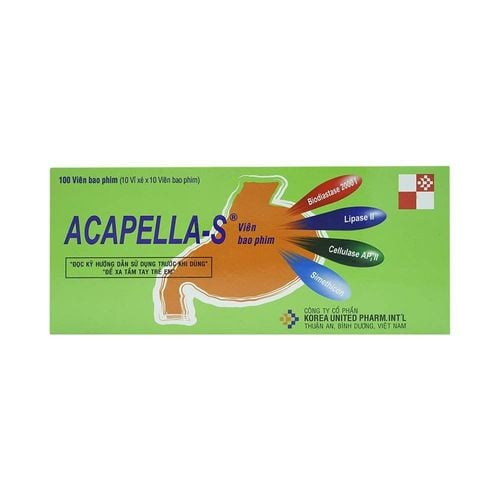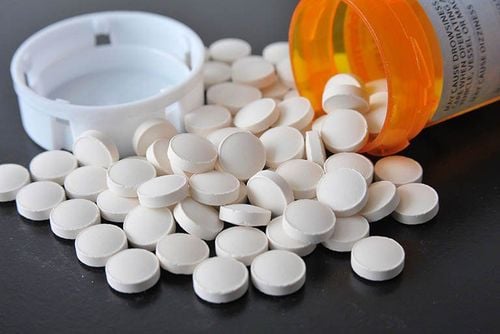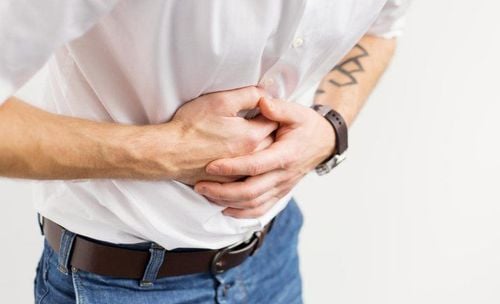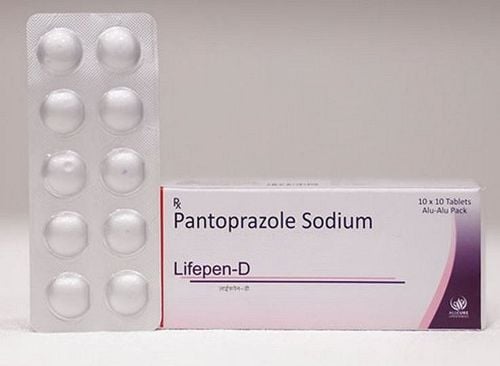This is an automatically translated article.
Posted by CKI Doctor Nguyen Cong Hoa - Intensive Care Unit - Vinmec Times City International Hospital
Abdominal pain is pain in your abdomen from the lower edge of your ribs to your pelvis. The abdomen contains many organs, including the stomach, liver, pancreas, small intestine, colon, and reproductive organs. There are also large blood vessels in the abdomen.
1.Overview of abdominal pain
There are many causes of abdominal pain, in which:
Abdominal pain requiring surgical intervention includes: appendicitis, intestinal obstruction, perforation of the stomach and intestines, stones stuck in the gallbladder neck, biliary obstruction, Acute pancreatitis, obstructive stones, fluid retention, pus, kidney and ureter... Abdominal pain due to obstetric causes such as: ruptured ectopic pregnancy, torsion ovarian cyst,...However, most attacks Abdominal pain is harmless and goes away without surgery. Sometimes, abdominal pain may stop and the cause will never be known, or it may be that the cause becomes more apparent over time.
2. Abdominal pain, when to see a doctor?
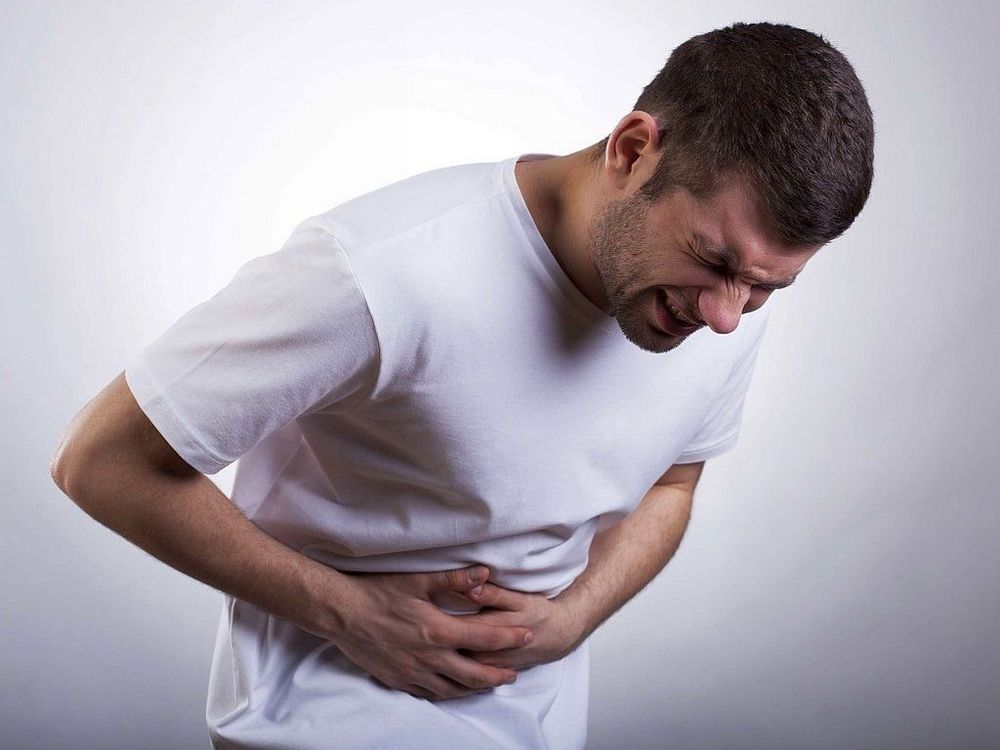
When you have abdominal pain, you need to go to a hospital or specialist clinic right away when you have the following symptoms:
Sudden severe abdominal pain Abdominal pain that lasts for several hours Pain and/or vaginal bleeding, pain Abdominal pain during pregnancy Pain in your scrotum if you are male Abdominal pain with vomiting or difficulty breathing Abdominal pain and vomiting blood Abdominal pain with blood in stools or abdominal pain and blood in urine Pervasive abdominal pain to your chest, neck or shoulder Abdominal pain with fever and sweating Abdominal pain, skin becoming pale and lethargic Abdominal pain, bloating, inability to urinate. Abdominal pain, bloating, unable to pass stool. To help the doctor diagnose the exact cause of abdominal pain, the patient needs to:
Tell the doctor the location of the abdominal pain The location of the pain can help the doctor find the cause. Pain intensity and duration must also be considered when making a diagnosis. During the examination, the doctor may ask some questions such as:
How do you feel the pain? Abdominal pain is sharp, stabbing, or dull, or burning, or sharp, intermittent. How long does the pain last? Abdominal pain can be brief, lasting for a few minutes, or it can last for several hours and longer. Sometimes the abdominal pain is strong for a while and then the pain decreases in intensity for a while. What events caused the pain? The pain can be made worse or lessened by a number of factors, such as after a meal, better with bowel movements, better after vomiting, or worse when lying down. Do certain foods trigger pain? 3. Diagnosing the cause of abdominal pain Depending on the location of the pain, the doctor will help diagnose the cause of the abdominal pain including:
Left upper abdominal pain: Enlarged spleen Upper right abdominal pain: Gallbladder disease , hepatitis Lower left abdominal pain: Diverticulitis, ovarian cyst, twisted ovary Lower abdominal pain: Urinary tract infections, gynecological problems like uterine fibroids and cancer
4. Causes of abdominal pain in adults

There are many causes of abdominal pain, however, in adults, abdominal pain may not come from the abdomen. Some surprising causes include heart attacks and pneumonia, conditions in the pelvis or groin, some skin rashes like shingles, and problems with tight abdominal muscles. The pain can occur with problems urinating or with bowel movements, or problems with timing.
With so many organs and structures in the abdomen, it can be difficult for a doctor to be completely certain of the cause of a patient's problem. Your doctor will ask a few questions and then examine you carefully. Your doctor may perform further tests or an ultrasound and x-ray or CT scan of the abdomen. The cause of the patient's pain can be quite obvious and not serious.
The doctor also may not be able to find the cause, the pain gets better in a few hours or days. In this case, the doctor needs to make sure the pain doesn't require surgery or hospitalization.
4.1 Diagnosing abdominal pain in adults If examination and testing is needed when an adult has abdominal pain, tests that may be done include:
Rectal exam to check for blood in the stool and for hemorrhoids? If you are a man, your doctor may examine your penis and scrotum If you are a woman, your doctor may do a pelvic exam to check for problems in your uterus, fallopian tubes, and ovaries, and do pregnancy test. Blood tests to look for infection (causing an increased white blood cell count) or bleeding (causing a low blood count or hemoglobin) Other blood tests may look at enzymes in the liver or pancreas and heart to sort out which organs may be involved Urine test to look for infection in the urine or blood (if kidney stones are present) ECG (electrical trace of the heart) to rule out a heart attack Other tests, including including an X-ray, ultrasound, or CT scan Sometimes a person may also be referred to another doctor to help find the cause of the problem. Endoscopy is an examination in which a flexible tube with a camera and light at the tip is used to examine certain internal organs without surgery. Different names are used depending on which agency is being considered. If a test is available, the doctor will explain the results to the patient. Some results may take a few days to come back and these will be sent to your local doctor.
4.2 Treatment of abdominal pain in adults

Treatment for colic in adults depends on what is causing the pain, which may include:
Pain relief - the pain may not go away completely with pain relievers, but it will ease. Fluids - the patient may receive intravenous fluids to correct fluid loss and rest the intestinal tract. Medicines - the patient may be given some anti-emetics, bowel regularities, reduced stomach acid... Fasting - the doctor may ask the patient not to eat or drink anything until known. be the cause of the pain. 4.3 The person needs to take care of themselves at home Most abdominal pain goes away without special treatment, there are a few things the person can do to help relieve the pain, including:
Warm compresses on the abdomen Soak in a warm bath, being careful not to burn yourself. Drink a little more water.. When allowed to eat again, start with an easy to digest liquid then move on to foods like cookies or toast. Get plenty of rest Try antacids to help relieve some types of pain. Take a mild pain reliever such as paracetamol, check the package for the correct dose. Avoid aspirin or anti-inflammatory medications unless advised by your doctor. These medicines can make some types of stomach upset worse. Vinmec International General Hospital is one of the hospitals that not only ensures professional quality with a team of leading doctors, modern equipment and technology, but also stands out for its examination and consulting services. and comprehensive, professional medical treatment; civilized, polite, safe and sterile medical examination and treatment space.
If you have a need for consultation and examination at Vinmec Hospitals under the nationwide health system, please book an appointment on the website for service.
Please dial HOTLINE for more information or register for an appointment HERE. Download MyVinmec app to make appointments faster and to manage your bookings easily.
SEE MORE
Signs of abdominal pain across the navel, throbbing, warning of what disease? Children with colic: When should you go to the doctor? Children with colic: Don't be subjective





